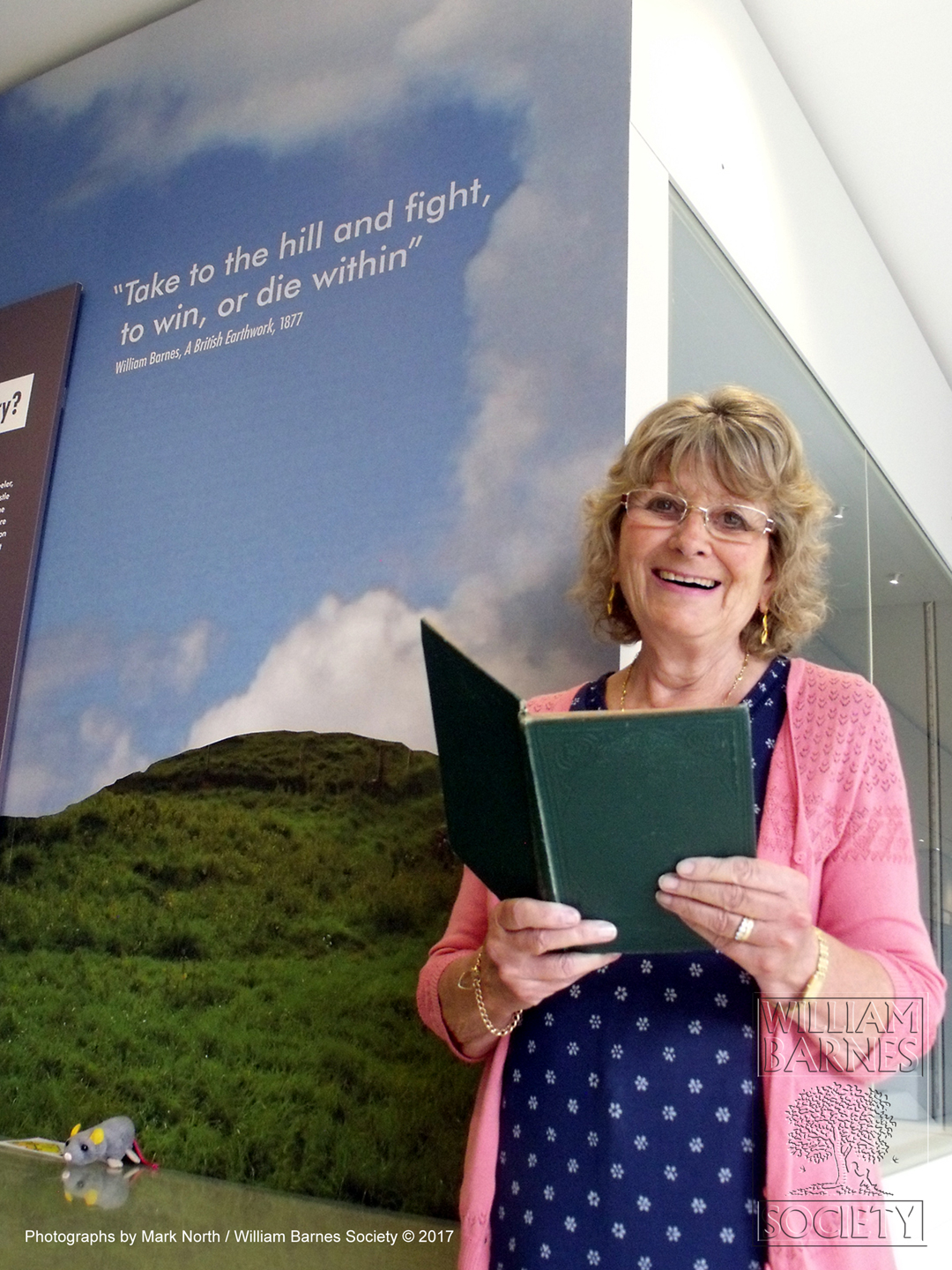Barnes the Archaeologist
By Mark North

The new Archaeology Gallery at Dorset County Museum was redeveloped as part of a £250,000 project supported by the Heritage Lottery Fund in association with the Dorset Area of Outstanding Natural Beauty and the South Dorset Ridgeway Landscape Partnership.
Part of the refurbishment was the Maiden Castle display of the two skeletons that where discovered during the 1930's excavation by Sir Mortimer Wheeler. It was decided that an extract of William Barnes poem 'A British Earthwork' which was first published in the the Dorset Natural History and Antiquarian Field Club in 1877, would be used in the display.
Barnes had a passion for archaeology and would lecture and contribute many articles on the subject. He had also taught himself Welsh, which he admired as a 'pure' language, i.e. with no words derived from other tongues.
A British Earthwork by William Barnes
[An Archaeologist speaks.]
The grassy downs of Dorset,
Rising o’er our homes of peace,
E’er teem with life and riches
In the sheep and precious fleece;
And charm the thoughtful roamer
When, like us, he climbs to scan
Their high-cast mounds of war – the works
Of Britain’s early man,
Whose speech, although here lingers yet
His mighty works of hand,
Has ceased a thousand years to sound
In air of this green land,
And startled may it be to hear
The words of British kin —
An gwaliow war an meneth,(1)
An caer war an bryn.(2)
Their breastworks now are fallen,
And their banks are sunken low;
The gateway yawns ungated,
And unsought by friend or foe.
No war-horn (3) calls for warriors,
And no clear-eyed watchmen spy
For tokens of the foe, around
The quarters of the sky.
No band, with shout and singing, (4)
Sally forth with spear and sword,
Staying foes at wood or hill,
Or at the waded river ford;
Or else to take the hill, and fight
To win, or die within
An gwaliow war an meneth.
An caer war an bryn.
There were lowings of the cattle
By the rattling spears and swords;
There were wails of weeping women
And grim warriors’ angry words —
“Be every Briton fearless, or
For ever live in fear;
And bring his ready weapons out —
His bow, and sword, and spear! (5)
For what have we to fight the foe?
Our children and our wives!
For whom have we to fight? For those
Far dearer than our lives!
And we, to shield them all, will die,
Or else the battle win,
Yn (6) an gwaliow war an meneth,
Yn an caer war an Bryn ! “
But now, in sweet, unbroken peace,
May Dorset land-folks sleep;
In peace may speed the gliding plough,
In peace may graze the sheep;
In peace may smoke our village tuns,
And all our children play;
And may we never need nigh banks
To keep the foe at bay!
And blest be lord or farmer
Of the land, who wins our thanks
By sparing from the spade and sull
These olden British banks,
And not destroying, for a crown
Or pound that he might win,
An gwaliow war an meneth,
An caer war an bryn.
Notes:
(1) – “The ramparts on the mountain.”
(2) -“The stronghold on the hill”
This is In the old Cornoak or Cornish-British, that of our West of England. The modem
Welsh would be —
“Y gwaliaie ar y mynydd,
Y au caer ar y bryn.”
Au pronounced ace; y like e in le, French ; ”mynydd,” munneethe.
(3) – Cadgorn. The bugle-horn was used for hunting, war, and drinking.
(4) – By the laws of Hoel Dda, when the Welsh marched to battle the bards were to go before them singing a national song, now lost, called “Unbenaeth Prydain” (“The Monarchy of Britain “). This, however, was later than the time of the upcasting of our earthworks.
(5) -A law triad gives, as law-bidden weapons which every man was to keep ready for battle, a sword, a spear, and a bow with twelve arrows.
(6) – In.
More news









Starts 09:00
ONLINE | Barnes Night: A Celebration of the Life and Work of William Barnes

Starts 09:00
ONLINE | A Dorset Spring through the Poetry of William Barnes

11:00 till 12:30
Annual Service of Thanksgiving of William Barnes

Starts 00:00
Cerne Abbas Festival - William Barnes' Poetry Readings

13:00 till 15:00
Wreath Laying at the William Barnes Statue

10:00 till 17:00
William Barnes at Stock Gaylard Oak Fair 2026

